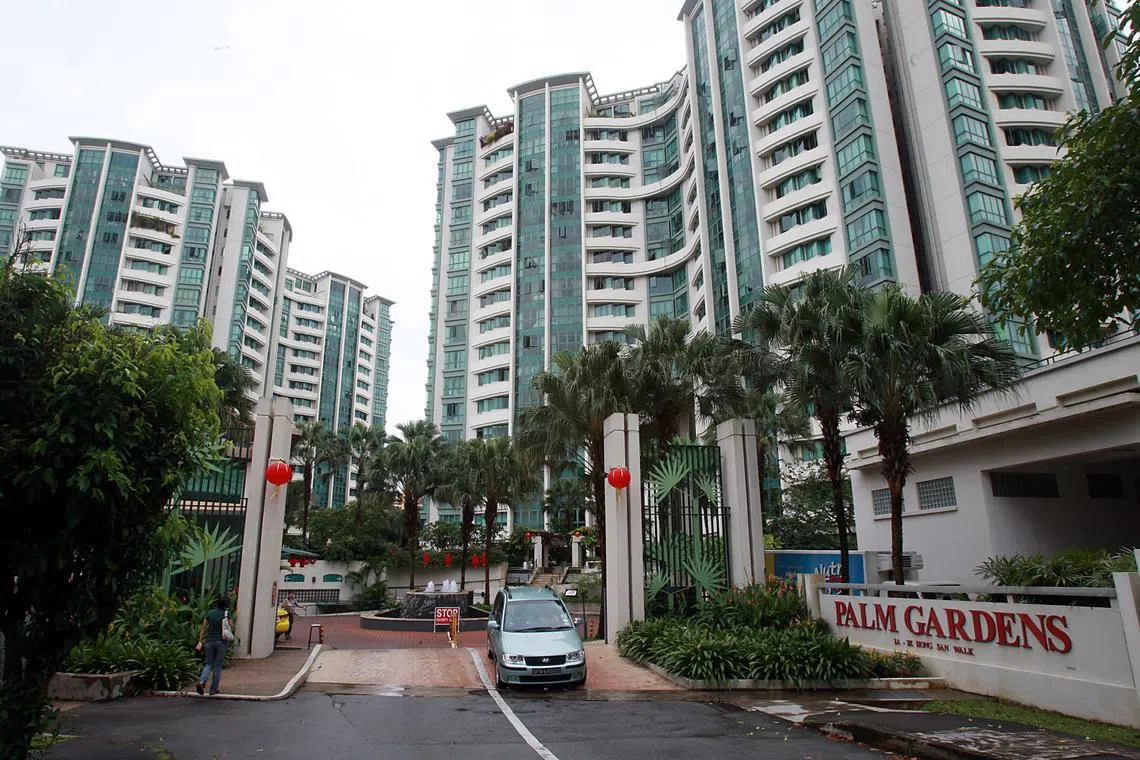High Court rules condo shop owner has right to reserved seat on council
Sign up now: Get ST's newsletters delivered to your inbox

The High Court found that Palm Gardens met the criteria of being a “mixed-use development”.
PHOTO: SHIN MIN DAILY NEWS
SINGAPORE - The High Court has reversed a decision by the Strata Titles Board
The case centred on the interpretation of the term “mixed-use development” in a provision of the Building Maintenance and Strata Management Act.
Under the Act, at least one council seat must be reserved for each class of use in mixed-use developments.
In written grounds of decision issued on Monday, Justice Kwek Mean Luck found that Palm Gardens, which has 695 separate strata units – 694 residential units and a shop unit – met the criteria of being a “mixed-use development”.
First, said the judge, it was not in dispute that the condo has more than three subsidiary proprietors.
Thus, the only issue was whether Palm Gardens consisted of buildings authorised under the Planning Act for two or more classes of use.
Justice Kwek referred to the planning permission issued by the Urban Redevelopment Authority (URA) on Dec 14, 2000.
“In my view, the fact that Palm Gardens was authorised to have both residential units and a shop unit meant that Palm Gardens was authorised under the Planning Act for two classes of use – residence and commercial,” said the judge.
The dispute arose from the management council elections in November 2021.
The representative for the condo’s managing agent who helped conduct the elections took the position that the property was a mixed-use development and thus, one council seat was reserved for the minimart owner.
The other 13 council members were elected through the regular process.
Six home owners, who own three units between them, then took the case to the board.
The board agreed with them that the shop owner did not have an automatic right to be on the council and invalidated his appointment.
The board, in its written grounds released in August, said the presence of one shop unit did not make the condominium a mixed-use development.
The management corporation, represented by Mr Toh Kok Seng, then appealed to the High Court.
In his grounds, Justice Kwek disagreed with the board that there must be a minimum number of owners in a particular class of use for a development to be considered “mixed-use”.
He noted that there was no requirement for this under the law.
The judge rejected arguments by the six home owners that a shop operating on land that has been zoned as “residential” does not fall under the “commercial” class of use.
He said this went against the plain words of the relevant provision in the Act.
Justice Kwek also examined the replies given by URA and the Building and Construction Authority (BCA) to queries from the parties.
He noted that a BCA deputy director had told the managing agent to refer to the written permission issued by URA to check what class of use the shop came under.
Instead, the board relied on a reply from a more junior BCA officer, who said the condo was registered as a residential development, without specifying what the registration related to.



